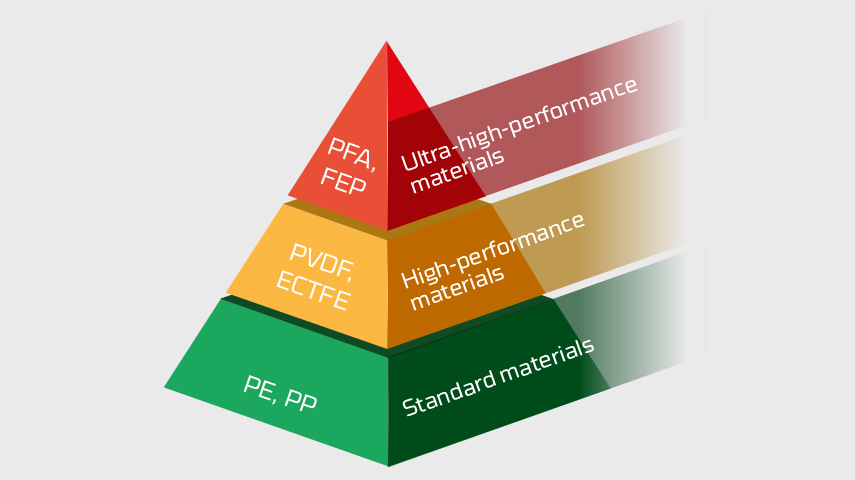AGRU material pyramid
Materials for every requirement
AGRU specialises in semi-crystalline thermoplastics. The particular application determines which material offers the best possible economic efficiency and operational reliability. AGRU's plastics experts will help you select the best plastic for your application. The standard materials PE and PP are ideal for transporting water, compressed air, natural gas or chemicals. It is essential to use high-performance plastics such as PVDF and ECTFE for applications with aggressive media. However, only ultra-high-performance materials such as PFA and FEP offer the highest media and temperature resistance, so that almost any problem relating to corrosion can be solved.







